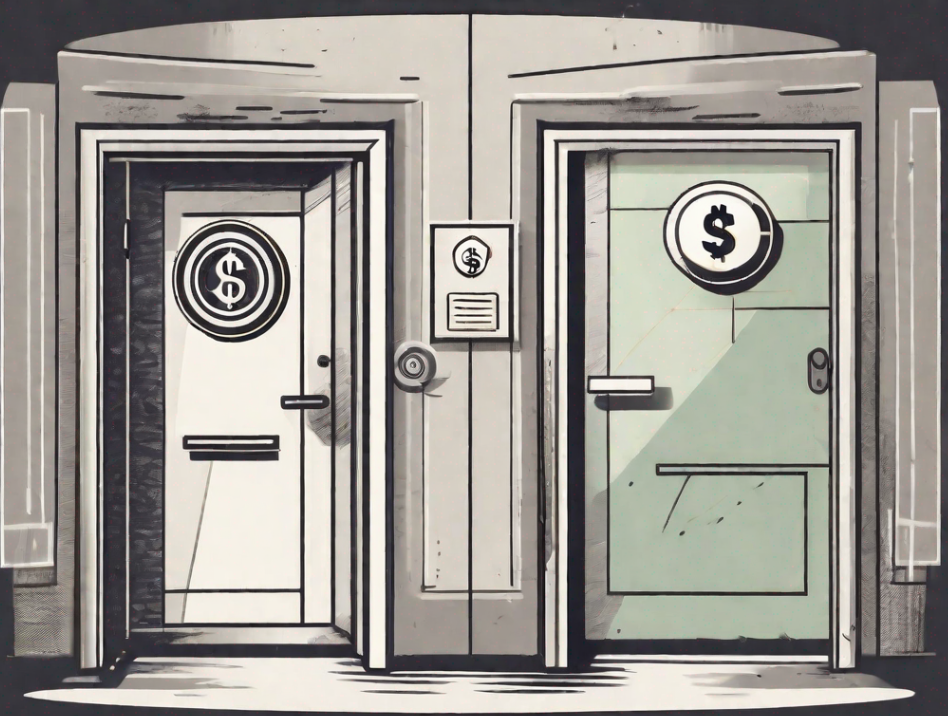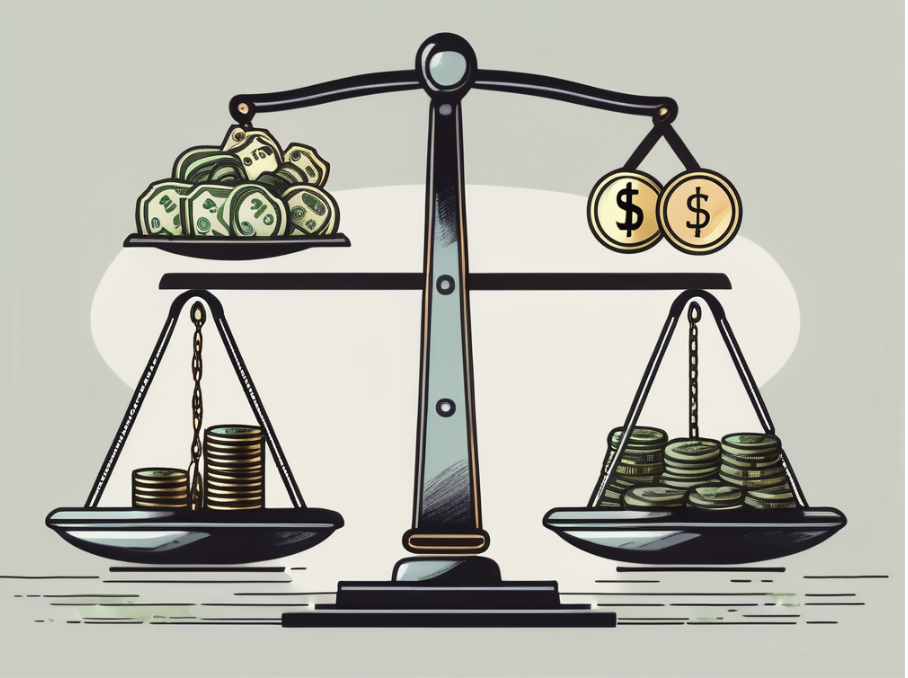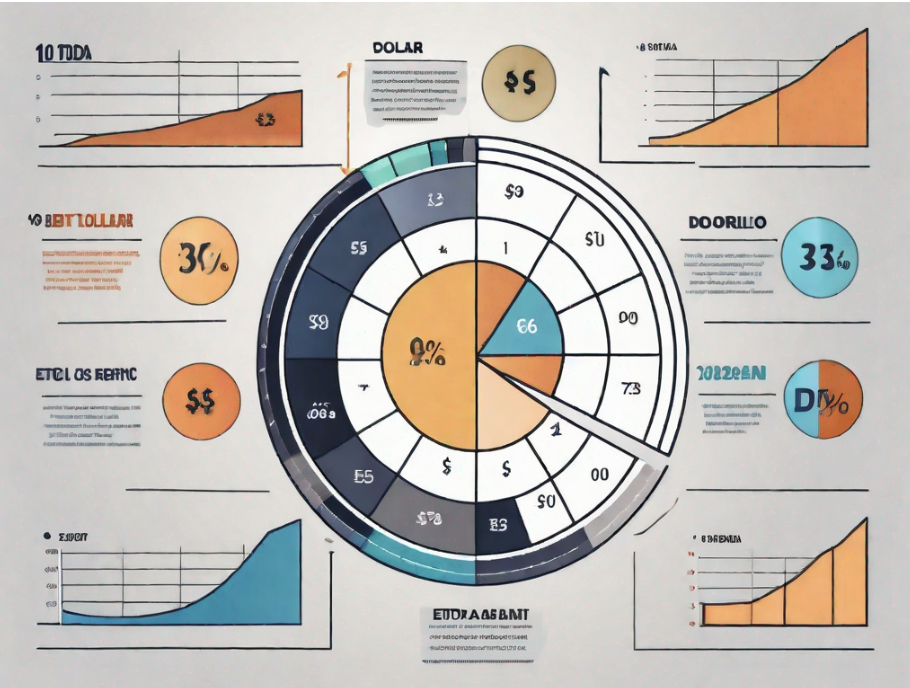Comparing the Role of a Director of Finance vs. a Controller
Comparing the Role of a Director of Finance vs. a Controller
Discover the differences between the roles of a Director of Finance and a Controller in a business setting.

In the corporate world, the positions of Director of Finance and Controller are often mentioned interchangeably, but they hold distinct roles and responsibilities within an organization. Understanding the differences between these two roles is crucial for individuals aspiring to pursue a career in finance. This article will compare and contrast the key responsibilities, required skills and qualifications, career progression and opportunities, salary and compensation, as well as the impact on business operations for Directors of Finance and Controllers. By gaining insight into these areas, you can make informed decisions regarding the right role for your career path.

Understanding the Key Responsibilities
Understanding the Key Responsibilities
Role of a Director of Finance
A Director of Finance is primarily responsible for overseeing and managing an organization’s financial affairs. They play a pivotal role in shaping the financial strategy and direction of a company. This includes tasks such as financial planning and analysis, budgeting, forecasting, and financial reporting.
Financial planning involves developing a comprehensive roadmap for the organization’s financial future. This includes setting financial goals, identifying potential risks and opportunities, and creating strategies to achieve financial success. Through careful analysis of financial data and market trends, a Director of Finance can make informed decisions that drive the organization towards its goals.
Budgeting is another crucial responsibility of a Director of Finance. They work closely with department heads to develop and manage the organization’s budget. This involves allocating resources, setting spending limits, and monitoring expenses to ensure they align with the company’s financial objectives.
Forecasting is an essential aspect of financial planning. A Director of Finance uses historical data, market trends, and industry insights to predict future financial performance. By accurately forecasting revenue, expenses, and cash flow, they can anticipate potential challenges and opportunities, enabling the organization to make proactive decisions.
In addition to financial planning and analysis, a Director of Finance is responsible for financial reporting. They prepare and present financial statements, including balance sheets, income statements, and cash flow statements, to stakeholders such as executives, board members, and investors. These reports provide a comprehensive overview of the organization’s financial health and performance.
Furthermore, a Director of Finance ensures compliance with financial regulations. They stay updated on relevant laws and regulations and implement internal controls to ensure the organization’s financial practices adhere to legal requirements. This includes monitoring financial transactions, conducting audits, and addressing any non-compliance issues.
Overall, a Director of Finance plays a critical role in driving the financial success of an organization. Their strategic decision-making, financial planning, and compliance efforts contribute to maximizing profitability and minimizing risk.
Role of a Controller
Role of a Controller
On the other hand, a Controller focuses on the operational aspects of finance within a company. Their primary responsibility is to oversee and manage the accounting operations of an organization. This includes tasks such as financial record-keeping, managing financial transactions, and ensuring compliance with accounting principles and regulations.
Financial record-keeping is a fundamental responsibility of a Controller. They maintain accurate and up-to-date financial records, including general ledgers, accounts payable and receivable, and payroll. These records serve as a foundation for financial reporting and decision-making.
Managing financial transactions is another crucial aspect of a Controller’s role. They oversee the processing of invoices, payments, and receipts, ensuring accuracy and timeliness. By closely monitoring financial transactions, a Controller can identify any discrepancies or irregularities and take appropriate action to rectify them.
Ensuring compliance with accounting principles and regulations is a key responsibility of a Controller. They stay updated on accounting standards, such as Generally Accepted Accounting Principles (GAAP), and ensure the organization’s financial practices align with these standards. This includes preparing financial statements in accordance with GAAP and coordinating external audits to validate the accuracy of financial records.
In addition to financial recordkeeping and compliance, a Controller is responsible for producing accurate and timely financial statements. They prepare financial reports, including income statements, balance sheets, and cash flow statements, that provide a comprehensive overview of the organization’s financial performance. These reports are crucial for decision-making, budgeting, and assessing the organization’s financial health.
Furthermore, a Controller plays a key role in managing tax compliance. They ensure the organization meets its tax obligations by accurately calculating and filing tax returns, monitoring tax regulations, and implementing tax planning strategies. By effectively managing tax compliance, a Controller helps minimize the organization’s tax liability and mitigate any potential risks.
Implementing financial controls is another important responsibility of a Controller. They establish and enforce internal controls to safeguard the organization’s assets, prevent fraud, and ensure the accuracy of financial records. This includes implementing segregation of duties, conducting regular internal audits, and maintaining strong financial policies and procedures.
The Financial Controller is essential in managing an organization’s operational aspects of finance. Their focus on financial record-keeping, compliance, financial reporting, tax management, and financial controls contributes to the organization’s financial stability and success.
Below is our article about the 5 Top Characteristics of the Successful Controller.

Required Skills and Qualifications
Required Skills and Qualifications
Skills for a Director of Finance
To excel as a Director of Finance, individuals should possess strong analytical and strategic thinking skills. They need to have a deep understanding of financial management principles, as well as the ability to analyze complex financial data and provide valuable insights to support decision-making.
Moreover, effective communication and leadership skills are vital for Directors of Finance as they often collaborate with cross-functional teams and present financial information to key stakeholders. Additionally, they should have a strong grasp of financial regulations and possess a high level of integrity to handle sensitive financial information.
A Director of Finance must also be well-versed in risk management and have the ability to identify potential financial risks and develop strategies to mitigate them. They should be able to assess the financial health of the organization and make recommendations for improvement.
In addition, a Director of Finance should stay updated with the latest industry trends and developments in financial technology. They should be familiar with financial software and tools that can streamline financial processes and enhance efficiency.
Skills for a Controller
Controllers must have excellent attention to detail and strong organizational skills to fulfill their role successfully. They need to be proficient in accounting principles and have in-depth knowledge of financial reporting standards.
Furthermore, Controllers should possess good problem-solving abilities to identify and resolve accounting and financial issues efficiently. Strong interpersonal skills are also essential as they need to collaborate with various departments and work closely with auditors and tax professionals.
A Controller should also have a solid understanding of internal controls and be able to implement and monitor them effectively. They should be able to design and maintain financial systems that ensure accuracy and compliance with regulations.
Moreover, Controllers should have a proactive approach to financial management and be able to anticipate potential challenges and opportunities. They should be able to provide strategic financial advice and contribute to the overall financial planning and decision-making process.
Additionally, Controllers should have strong leadership skills and the ability to manage and develop a team of finance professionals. They should be able to provide guidance and support to their team members and foster a collaborative and high-performing work environment.
Career Progression and Opportunities
Career Progression and Opportunities
When it comes to career progression, the field of finance offers a multitude of opportunities for professionals to grow and advance in their roles. This is particularly true for Directors of Finance and Controllers, who have the chance to explore various paths within and outside their current organizations.
Career Path for a Director of Finance
Directors of Finance often have diverse career opportunities, both within and outside their current organization. With experience and expertise, they can progress to higher-level positions such as Chief Financial Officer (CFO) or Vice President (VP) of Finance. In some cases, they may even transition into executive roles such as Chief Executive Officer (CEO) or President.
However, the journey to these top-level positions requires continuous learning and development. Directors of Finance need to stay updated with the latest industry trends, regulations, and best practices. They must also possess strong leadership and communication skills to effectively manage teams and collaborate with other departments.
Moreover, Directors of Finance can explore opportunities in various industries and sectors, as financial expertise is crucial for organizations across all sectors. They can leverage their financial acumen and strategic thinking skills to make a meaningful impact on business performance and drive growth. Whether it’s in healthcare, technology, manufacturing, or any other industry, the role of a Director of Finance is essential in ensuring financial stability and success.
Career Path for a Controller
For Controllers, career progression typically involves advancing within the finance and accounting function. They may move on to become Senior Controllers or Finance Managers, taking on broader responsibilities and overseeing larger teams.
Controllers play a crucial role in managing the financial operations of an organization. They are responsible for ensuring accurate and timely financial reporting, maintaining internal controls, and managing compliance with regulatory requirements. Their expertise in financial operations and accounting practices makes them indispensable in safeguarding the financial health of the organization.
While Controllers may not ascend to the executive level as frequently as Directors of Finance, their contributions are highly valued within organizations. Their attention to detail, analytical skills, and ability to interpret financial data are essential in making informed business decisions. Controllers also collaborate closely with other departments, providing financial insights and recommendations to drive efficiency and profitability.
Furthermore, Controllers can enhance their career prospects by obtaining professional certifications such as Certified Public Accountant (CPA) or Certified Management Accountant (CMA). These certifications validate their expertise and demonstrate their commitment to professional growth.

Both Directors of Finance and Controllers have promising career paths with ample opportunities for growth and advancement.
By continuously expanding their knowledge, honing their skills, and staying abreast of industry developments, finance professionals can carve out successful and fulfilling careers in this dynamic field.
Salary and Compensation Comparison
Salary and Compensation Comparison
Average Salary of a Director of Finance
The average salary for a Director of Finance varies depending on factors such as location, industry, and company size. According to industry reports, the median salary for Directors of Finance ranges from $120,000 to $180,000 per year. However, in large corporations or in higher-cost regions, salaries can surpass $200,000 annually, with additional benefits such as bonuses and stock options also being common.
Directors of Finance play a crucial role in managing the financial operations of an organization. They are responsible for overseeing financial planning, budgeting, and forecasting, as well as financial reporting and analysis. Their expertise in financial management and strategic decision-making makes them highly valuable assets to companies across various industries.
Furthermore, the salary of a Director of Finance can also be influenced by their level of experience and education. Those with advanced degrees, such as an MBA or a CPA certification, may command higher salaries due to their specialized knowledge and skills.
Average Salary of a Controller
In comparison, the average salary for a Controller is slightly lower than that of a Director of Finance. Controllers can expect to earn a median salary ranging from $90,000 to $140,000 per year, with the potential for higher salaries in larger companies and specific industries.
Controllers play a critical role in overseeing the financial operations of an organization. They are responsible for managing financial reporting, internal controls, and compliance with financial regulations. Their expertise in financial analysis and risk management ensures the accuracy and integrity of financial data.
Similar to Directors of Finance, the salary of a Controller can also be influenced by factors such as experience, education, and industry. Controllers with extensive experience and advanced certifications, such as a Certified Management Accountant (CMA) or a Certified Internal Auditor (CIA), may command higher salaries due to their specialized knowledge and expertise.
It is important to note that compensation packages may also include bonuses, profit-sharing, and other incentives that can contribute significantly to the overall compensation for both Directors of Finance and Controllers. These additional benefits can further enhance the attractiveness of these positions and serve as a means to attract and retain top talent in the field of finance.
Our The Dostoyevsky Package is designed to provide monthly bookkeeping + controller services to small businesses and startups and organize financials for family offices and small business projects to streamline business processes. With our services, you can Elevate Your Financial Strategy and Empower Your Accounting.

Impact on Business Operations
Impact on Business Operations
How a Director of Finance Influences Business
Directors of Finance have a direct impact on shaping and influencing a company’s financial strategy and performance. By analyzing financial data and providing insights, they contribute to informed decision-making at the highest levels of the organization.
Moreover, Directors of Finance are not only responsible for managing the financial aspects of a business, but they also play a crucial role in driving growth and profitability. They collaborate with other departments, such as marketing and operations, to develop strategies that align with the company’s overall goals and objectives.
Additionally, Directors of Finance are instrumental in identifying opportunities for cost optimization, revenue growth, and risk mitigation. Through their expertise in financial analysis, they can identify areas where the company can reduce expenses, increase revenue streams, and minimize potential risks.
Furthermore, Directors of Finance provide strategic financial guidance to the executive team and board of directors. They present financial reports, forecasts, and recommendations that help stakeholders make informed decisions about investments, expansions, and resource allocation.
How a Controller Influences Business
Controllers play a critical role in maintaining the financial health and integrity of an organization. By ensuring accurate and timely financial reporting, they provide stakeholders with the information needed to make informed decisions.
Moreover, Controllers are responsible for implementing and monitoring financial controls that safeguard the company’s assets and mitigate risks. They establish internal audit processes to detect and prevent fraudulent activities, ensuring compliance with regulatory requirements.
In addition to their role in financial reporting and control, Controllers also contribute to operational efficiency and cost savings. They analyze financial data to identify areas where processes can be streamlined and optimized, reducing unnecessary expenses and improving overall productivity.
Furthermore, Controllers collaborate with other departments to develop and monitor budgets, ensuring that financial resources are allocated effectively. They provide insights and recommendations on cost management, revenue generation, and investment opportunities.
Overall, Controllers bring a comprehensive understanding of financial operations to the table, enabling them to influence business decisions that drive growth, profitability, and long-term sustainability.
Choosing the Right Role for Your Career
Choosing the Right Role for Your Career
Considerations for Aspiring Directors of Finance
If you aspire to become a Director of Finance, it is essential to develop a strong foundation in financial management, strategic thinking, and leadership. Gaining diverse experience in different finance roles and pursuing advanced education, such as an MBA or professional certifications, can enhance your prospects for this role.
Moreover, networking and building relationships within the finance industry can open doors to opportunities and mentorship, helping you navigate your career path successfully.
Considerations for Aspiring Controllers
If your goal is to become a Controller, focus on developing a deep understanding of accounting principles and financial reporting standards. Building a solid foundation in financial operations and gaining experience in managing financial transactions will be vital.
Obtaining relevant certifications such as Certified Public Accountant (CPA) or Certified Management Accountant (CMA) can enhance your credibility and increase your chances of securing a role as a Controller. Additionally, continuous learning and staying updated with industry trends and regulations will be crucial for success in this position.

Conclusion
In conclusion, although the roles of Director of Finance and Controller are often mentioned interchangeably, they hold distinct responsibilities within an organization. By analyzing the key differences in responsibilities, required skills, career progression, compensation, and impact on business operations, aspiring finance professionals can make informed decisions about which role aligns best with their career aspirations. Whether you are drawn to the strategic financial leadership of a Director of Finance or the operational financial expertise of a Controller, both roles offer rewarding opportunities for growth and impact on businesses.
It All Starts With a FREE consultation!
Every client’s needs are unique and require varying amounts of time and attention. You can use this form to let us know what you’re looking for, and we’ll reach out to you to schedule an appointment and talk about rates for your business needs.
Please be as detailed as possible with what work is needed, what industry your business is in, and where you are located.
Our team will contact you with in 2 business days to set up the first meeting. We will make sure all your needs are taken into account when selecting the package and type of services you need.







Stay In Touch